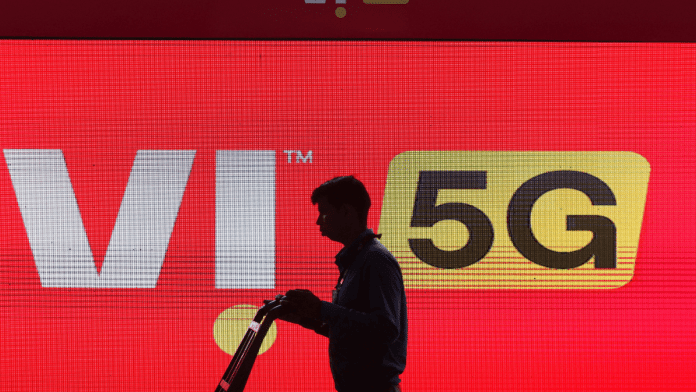How the Union government reacts to the latest Supreme Court order linked to adjusted gross revenue (AGR) of Vodafone Idea could throw up many questions.
Earlier this week, the apex court allowed the Centre to re-examine Vodafone Idea’s (Vi’s) entire AGR dues up to financial year 2016-17. This was a modification of an order issued on October 27 that had focused only on an additional demand of Rs 9,450 crore. The subsequent order of November 3 has widened the scope of relief for the struggling telco manifold. And this leads us to the question how the Union government, which holds a 49 per cent stake in Vi, would act now.
Will the government waive the AGR dues, which are currently pegged at Rs 83,400 crore, of the stressed telco in “public interest’’? Will the government pick up an additional stake in Vi, in lieu of its financial liability, and become a majority owner in the telecom company that’s a joint venture of the Aditya Birla Group and UK-based Vodafone? Also, how will the government deal with Bharti Airtel’s plea seeking relief on its AGR dues, which stands at around Rs 38,604 crore? The other major telecom player, Reliance Jio, does not have any pending AGR dues as it started its operations only in September 2016.
If the government takes further steps, including granting relief to Vi on its piled up liabilities, to prevent a duopoly situation in the telecom industry, another question may not be out of order. Can’t the state-owned telcos, Bharat Sanchar Nigam Ltd and Mahanagar Telephone Nigam Ltd, together provide the required bandwidth to keep the telecom industry competitive and duopoly-resistant? As of September 30, 2025, private telecom players had over 92 per cent market share, while public sector telcos held the remaining 8 per cent.
And as for duopoly, there are other consumer-facing sectors such as aviation witnessing a near duopoly situation — not a best case scenario, though.
Also read: How the Bagram airbase from the 1950s is geopolitically significant in the 21st century
Although the customer base of a telecom company (around 127.78 million wireless/broadband subscribers in the case of Vi) is often cited as one of the main reasons for the government taking measures to keep an entity afloat, number portability has been an option available to mobile phone users for some years. However, absorbing such a large number of users would be difficult in one go.
At this point, if the government grants relief to Vi in public interest and not to its rival Airtel, the question of level-playing field could come up. Even other players with no pending dues could ask for a level playing field in some other area of operation — for instance, in satellite broadband.
Satellite broadband has been stuck for a long time as spectrum allocation —who will get how much and how — has not been firmed up so far. We do know, however, that spectrum for satellite broadband will be given out through the administered allocation mechanism and not through auction, in sync with the global practice. The divide among the potential players in this segment could resurface on the question of level-playing field. The argument of legacy telecom players, which are now getting into satellite broadband as well, has been that they have dished out serious money to be in the 3G, 4G and 5G game, unlike new players like Starlink (promoted by Elon Musk) or Project Kuiper (promoted by Jeff Bezos), which are entering the India market through satellite broadband. If Musk and Bezos’s companies cater to the retail telecom market in India, the question of level-playing field is sure to arise.
In the technology space, e-commerce has already seen the two sides of the level-playing field. While inventory-led business is permitted for Indian e-commerce companies, foreign-owned players can only follow the marketplace model. The rules of doing business in the two formats are very different, while there’s no specific reason or logic for the differentiation. The inventory versus marketplace is being reportedly discussed as part of the trade deal between India and the United States. There’s a likelihood of the government allowing foreign ecommerce companies in inventory-led online business for the purpose of exports.
On the whole, uniformity of rules should be the playbook across sectors. Different rules, whether for telecom players, retail entities or online businesses, would invariably trigger the level-playing questions.
The recent Supreme Court order allowing the government to offer relief to a particular telecom company should be taken in the right spirit by all stakeholders. It is not a court direction to the government to write off the financial liabilities of a private telco. This can instead be a starting point for the government to rationalise taxes and duties so that the telecom industry is in a better place in future.
Nivedita Mookerji @nivmook is the Executive Editor of Business Standard. Views are personal.






